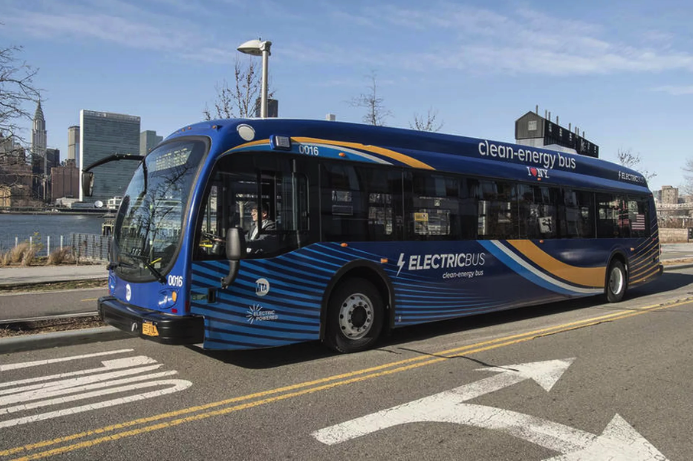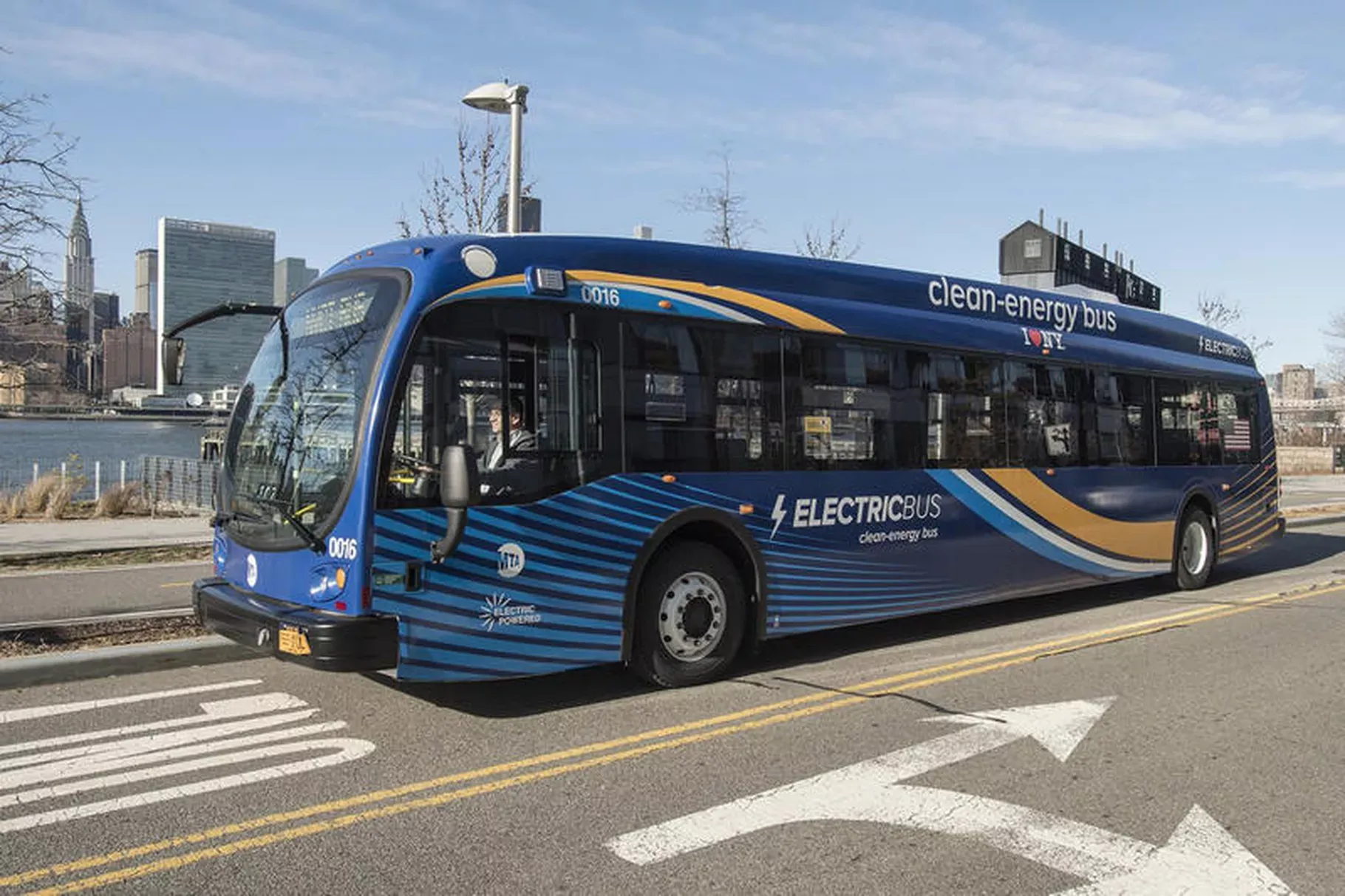City Council Wants MTA To Provide All Electric Buses During L Train Shutdown


WILLIAMSBURG – The New York City Council unanimously approved legislation urging the Metropolitan Transit Authority and Governor Andrew Cuomo to provide L train riders with an electric bus fleet during the shutdown.
The sponsor of Resolution 377, Council Member Rafael L. Espinal Jr., said the MTA should take the shutdown as an opportunity to address public health disparities and support climate change initiatives. “We have to remember that the reason the L train is being shut down is because of Hurricane Sandy, a hurricane that we look back on and can point to climate change as being the reason this happened in New York City.
“It’s time for us to get with the times,” Espinal said.
The resolution calls for an all-electric bus fleet to replace the 200 diesel buses the MTA plans to utilize during the shutdown. The emissions output from these buses is equivalent to putting 4,400 cars on the road, according to a press release from Espinal’s office. The buses will be concentrated in an area already known for its air pollution problem — North Brooklyn.
“This is making a public health crisis worse,” said Leslie Velasquez, the environmental justice program manager at El Puente, a community development organization in South Williamsburg. The organization strongly supports electric buses to address not only the L train shutdown, but the air pollution problem in the area. A study from the NYC Department of Health found that Community District 1, which includes Williamsburg, has higher rates of air pollution than the averages for both Brooklyn and New York City as a whole, ranking eighth out of 59 Community Districts.
The resolution additionally highlights the impact of carbon emissions in accelerating climate change. Council member Espinal noted that New York is trailing behind other major cities who have adopted zero-emissions legislation. Global metropolises, including London, Paris and Mexico City, as well as several U.S. cities — Seattle and Los Angeles — have signed on to the C40 Fossil-Fuel-Free Streets declaration. Signatories commit to purchasing only zero-emissions buses by 2025.
Some transit specialists worry about accelerating electric bus legislation before fixing the issues of the existing system. David Bragdon, the executive director of TransitCenter, an advocacy and research foundation, said investment in electric buses is important, but timing is everything. “The L train shutdown isn’t the time to experiment with potentially risky and unknown technology.” With bus ridership declining, he said the MTA should focus on increasing the reliability and capacity of the current bus fleet.
The Council’s vote aligns with policies to restructure the city’s transportation system. Andy Byford, the New York City Transit president, has made climate change considerations an overt part of Fast Forward, the ambitious plan to modernize the subway and bus network At a townhall meeting in Crown Heights on Tuesday evening, he advocated for electric buses. “If the technology proves to be worthwhile,” he said, “we will progress all out for an electric fleet.”
The MTA is currently testing 10 electric buses as part of a 3-year pilot program, with plans to purchase 60 additional buses if the technology proves to be reliable. The program will be in effect during the L train closure. The City Council resolution urges the MTA and Governor Cuomo to instead use the shutdown as an opportunity to fully commit to the technology through the use of 200 electric buses. With the closure scheduled to begin in April, The MTA and Governor Cuomo are being encouraged to move expeditiously to enact the legislation.
“This is going to send a strong signal to the MTA and to the governor that we as a city want to make the transition to an electric bus fleet,” Espinal said. “This is only the tip of the iceberg.”



